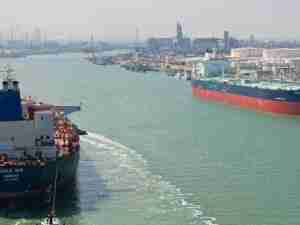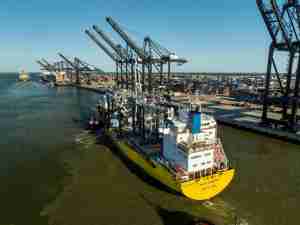Louis Dreyfus, Cargill, Fibria win Brazil port areas
By: Reuters | Dec 10 2015 at 09:38 AM | Ports & Terminals
SAO PAULO - Louis Dreyfus Commodities and Cargill won an auction on Wednesday to operate a grain terminal at Santos Port for 25 years, while Fibria SA and Marimex won rights to operate pulp areas there leased from Brazil’s government.
The three port areas were the first of 93 nationwide that the government hopes to auction under a 2012 law. Wednesday’s auction brought 430.5 million reais ($114 million) in concession fees to President Dilma Rousseff’s cash-strapped government, far less than the roughly 600 million reais it had expected.
Planning Minister Nelson Barbosa said more funds would follow as the concession winners would be required to make more investments and upgrade port infrastructure.
“Any concession revenue helps to raise the primary surplus, but the main purpose of the program is to bring in more investment,” Barbosa said after the auction in Sao Paulo.
Port Minister Helder Barbalho said in a statement the contracts could bring in 1 billion reais in the next 25 years. Another auction should take place in March, he said.
LDC Brasil BSL, the consortium that will operate the grain terminal, is 60 percent owned by Louis Dreyfus Commodities, while Cargill has a 40 percent stake. It offered 303 million reais ($80 million), beating another proposal from Agrovia SA.
The consortium must move 3.9 million tonnes by its third year of operation and 4.1 million tonnes by the fifth year. It will also need to upgrade infrastructure, including shiploaders, at the terminal known as STS04 in the Ponta da Praia area of Santos.
Clythio van Buggenhout, Cargill’s port director in Brazil, said the company had decided to bid with Louis Dreyfus because the companies already have cooperated a terminal on the other side of the port, in Guaruja, since 2009.
By offering 115 million reais, Fibria outbid rival Eldorado to operate a new pulp and paper port terminal known as Macuco at Santos, Latin America’s largest port.
A third area, also for pulp, received one bid of 12.5 million reais from Brazil’s Marimex.
An auction for a fourth area in the northern state of Para was canceled due to lack of interest.










